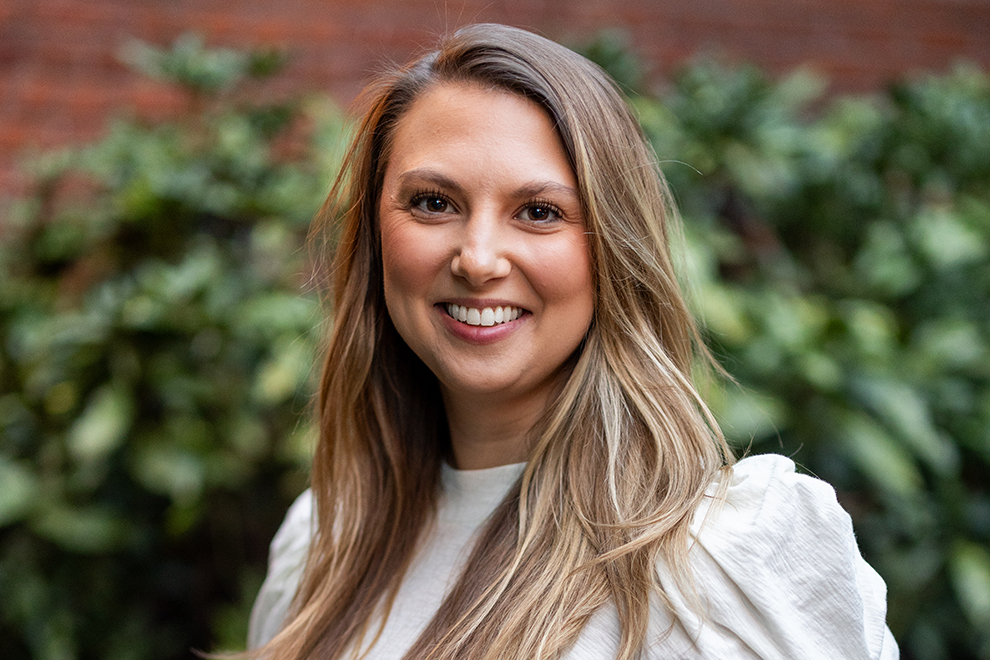Admissions Professionals Help Applicants Crack the Code
Often, college admissions decisions are anything but predictable. Jon Reider, Sally Springer, and Joyce Vining Morgan explain what admissions committees often look for, beyond grades and test scores.
San Francisco, CA (October 2013)—Meet Susie and Brian, high school seniors at similar schools. Bright and hardworking, Susie and Brian took a variety of rigorous courses throughout high school (including several at the AP level) and have almost identical grades and test scores. Susie was the editor of the yearbook and senior class president. Brian was captain of the baseball team and is a terrific artist. Susie was a devoted leader of her church’s youth group; Brian raised a lot of money for a local literacy program and was the only high school student on the advisory board of the non-profit that ran it. In other words, both were strong, attractive college applicants.
So why did Susie get into College X while Brian failed to make the cut? In contrast, why did Brian get good news from College Q, but Susie didn’t? And most pressing of all, how can you predict how you’ll stack up against the Susies and Brians whose files will be competing against yours in college admissions committee meetings?
“As the director of college counseling at a high school—and as a former admissions officer at Stanford—I can say with confidence that the most vexing question about the complexities of college admissions today is simply, ‘What are colleges really looking for?’” says Jon Reider, coauthor along with Sally Springer and Joyce Vining Morgan of Admission Matters: What Students and Parents Need to Know About Getting Into College, 3rd Edition(Jossey-Bass/A Wiley Imprint, July 2013, ISBN: 978-1-118-45027-7, $17.95,www.admissionmatters.com). “In terms of difficulty, trying to find the answer can sometimes feel like trying to crack the Mayan code. Vague admissions standards coupled with a lack of predictability leaves many college applicants feeling anxious, overwhelmed, and frustrated as they try to decide somewhat rationally where to apply.”
That’s where the third edition of Admission Matters, which devotes an entire chapter to examining what, exactly, colleges look for, comes in. Written by authors who have extensive experience working in higher education and college admissions, this book will give you the tools you need to navigate the complicated and often-confusing process of applying to college while making choices that are right for you. You’ll find information about writing essays, taking standardized tests, picking a college that will be a good fit, financial aid, athletic recruitment, and many other topics.
“Every day in my job, I see high school students trying desperately to present (I strongly dislike the widely used term ‘package’) themselves in the best possible light to colleges,” Reider shares. “While there’s no foolproof formula for crafting a winning college application—far from it!—there are some sound rules of thumb that I use to help my students stand out from the crowd. They’ll work for you, too.”
Here, Reider and his colleagues share four things you should keep in mind as you work on your applications:
Colleges don’t expect perfection. (Really!) As they write essays and fill out forms, most applicants try to scrub away as much evidence of their flaws as possible, while maximizing their strengths. No, there’s nothing wrong with trying to make a great impression on every admissions committee that sees your file, but Reider urges you not to drive yourself crazy trying to work in a compelling explanation of why your math grades have never veered north of mediocre, for example, or trying to demonstrate a driving academic passion when you actually have no clue what you’d like to major in, much less pursue as an eventual career. It’s possible to be honest and appealing at the same time.
“You don’t have to confess unbidden to any major weaknesses, but you also don’t have to be perfect,” Reider assures. “No human being is flawless, and admissions committees realize that. They know you’ll be stronger at some subjects than others. They don’t expect your writing quality to put Pulitzer winners to shame. And as a teenager, you’re still allowed to be uncertain about a lot of things, including what you want to study and what you want to do with your life.
“In fact, the new essay questions on the Common Application, used by over 500 colleges, allow for just this kind of self-reflection and honesty,” Reider adds. “Colleges want students to be genuine, even as they strive to make a good impression.”
Colleges value intellectual curiosity. Intellectual curiosity, or “vitality,” as Reider and his colleagues call it, is one of the X-factors that can make a particular application stand out from the crowd. That’s because colleges are primarily teaching institutions, and the admissions office works indirectly, but consciously, on behalf of the faculty. Professors want students who love learning, who pursue opportunities to enhance their knowledge, who seek out research, and who make a classroom come alive, whether the subject matter is English, psychology, or physics.
“A transcript, which is simply a record of performance, cannot show intellectual curiosity,” points out Vining Morgan. “A test score reveals even less, because it is just a number. So how do colleges pick up on this intangible quality? Mainly, it comes from the voice of the student in their essays or interviews, but also from recommendations from counselors, teachers, and perhaps others who can speak to this trait.
“As you may have guessed, intellectual curiosity isn’t something you can manufacture on the spot,” Vining Morgan shares. “Rather, it’s conveyed when certain parts of your personal story are revealed. For instance, maybe you describe the book on Roman military history you’ve been reading in an interview. Or in her recommendation letter, your biology teacher mentions the fact that you often stay after class to ask questions about the lesson.”
Colleges speak loudly about “engagement.” Who is going to “make a difference,” as colleges put it? Who is going to contribute? And in what ways? Is this student going to make campus life more interesting, vibrant, or fun?
“Here the depth (your level of participation), not necessarily the breadth (how many), of a student’s extracurricular activities plays a role,” says Springer. “It is no longer important to be ‘well-rounded.’ That term was retired long ago. While colleges overuse the word ‘passion,’ you can see what they are getting at. They want students who care about something very much, something that will make a positive impact on their campus. To a degree, colleges like all activities equally: athletics (except for recruited athletes, a special category), music, student government, community service, and more. (Some activities, such as your devotion to Dungeons and Dragons or your love of geocaching, are of secondary value, but not insignificant.)
“Remember, colleges are mainly looking for a participatory attitude, energy, and a willingness to work with others, so don’t worry about the fact that you only have a handful of extracurricular activities, especially if you have participated fully in them for longer periods of time,” Springer assures. “Colleges know that serving as the assistant leader of a Girl Scout troop for several years is much more time- and effort-intensive than being a member of your school’s French Club, which meets for a half-hour every two weeks.”
Colleges also look for “diversity” and try to “craft” a class. No word has been tossed around with more abandon recently than this one. But despite its prominence, many applicants overlook some of diversity’s less visible aspects. Diversity is not just about race and ethnicity, though these still matter at most colleges. It is also about religion, choice of major (anthropology and religious studies are rarer and thus often more appealing than popular majors like business and biology), geography, gender (in some schools), overcoming challenging circumstances (such as being the first in the family to attend college), and even playing an unusual instrument like the French horn.
“Very few colleges want every student on campus to fit the same mold,” comments Reider. “Although some colleges emphasize talent in a particular area like science or the arts, most are general purpose schools that want a little of everything: scholars and athletes, artists and computer whizzes, history majors and pre-meds, actors and poets, community activists and budding entrepreneurs. These colleges know that the more diverse the student body’s backgrounds, interests, goals, beliefs, etc. are, the more vibrant and enriching the campus will be.
“This is one of the main reasons why it is hard to predict who will be admitted among a number of similarly qualified applicants. College X might be drawn to your stated intention to be active in its Hillel group, while College Y might value another applicant’s passion for poetry slams. Yes, this method of constructing a diverse class can look inconsistent, but the colleges generally have an end goal in mind. So if you’re asked on an application why you are interested in that particular college, try to be as specific as possible with your answer. (In other words, don’t just write, ‘The campus is beautiful.’) Colleges want to understand what you will bring to their campus, what you might study, what activities you might engage in, how you will make your unique presence felt.”
“As I help students craft their college applications, the awkwardness of a first date comes to mind, except here, the parties aren’t equal,” Reider concludes. “The college holds most of the cards. That being the case, don’t try to outthink the system. What each admissions committee is looking for is just too variable and unknowable. Be genuine and honest, and resist the temptation to ‘package’ yourself into someone you are not. There is a college out there that will appreciate you.”
# # #
About the Authors:
Sally P. Springer is the coauthor of Admission Matters: What Students and Parents Need to Know About Getting Into College, 3rd Edition. She is the associate chancellor emerita at the University of California, Davis, and is a psychologist with 30+ years of experience in higher education as a professor and university administrator. She is the coauthor of Left Brain, Right Brain (published by W. H. Freeman, 1998), which was honored by the American Psychological Foundation for contributing to the public’s understanding of psychology. It has been translated into seven languages and appeared in five editions. Her second book, How to Succeed in College (Crisp Publications, 1992), is a guidebook for college freshmen. Dr. Springer received her bachelor’s degree summa cum laude from Brooklyn College and her doctorate in psychology from Stanford University. She has served on the faculty of both SUNY Stony Brook and UC Davis. She has been a volunteer admissions reader for the Davis campus and is a member of the National Association for College Admission Counseling and the Western Association for College Admission Counseling. For the last five years, she has provided one-on-one college admissions guidance to families as an educational consultant through Springer Educational Consulting. She is a professional member of the Independent Educational Consultants Association and serves as a member of its Education and Training Committee. She has personally taken the college admissions journey twice with her son and her daughter.
Jon Reider is the coauthor of Admission Matters: What Students and Parents Need to Know About Getting Into College, 3rd Edition. He is the director of college counseling at San Francisco University High School, an independent 9-12 high school. Before that, he served as an admission officer at Stanford University for 15 years, rising to the post of senior associate director of admission. He has two degrees in history, including a Ph.D. from Stanford, and taught there in a freshman humanities program for 25 years, for which he won a university-wide teaching award. Previously, he was a Marshall Scholar at the University of Sussex in England and taught sociology at the University of Tennessee at Chattanooga. He has also taught in the College Counseling Certificate Program at the University of California at Berkeley. He is a nationally known speaker and essayist in the admission profession and is widely cited in the media for his candid opinions and willingness to speak hard truths. He is a member of the National Association for College Admission Counseling and has served as the chair of its Committee on Current Trends and Future Issues.
Joyce Vining Morgan is the coauthor of Admission Matters: What Students and Parents Need to Know About Getting Into College, 3rd Edition. She is a certified educational planner specializing in college admission with an online individualized practice. She has over 17 years of experience in college admissions, including service as director of college counseling at The Putney School in Vermont and as vice-president of the New England Association for College Admission Counseling. Earlier in her career she wrote and translated books and articles on Russian theater history and taught in several disciplines (Russian language and literature, French language, humanities, and English) in a variety of public and private schools and colleges, including Phillips Exeter Academy, the Exeter AREA Junior and Senior High Schools, the American Embassy School of New Delhi, Vassar College, and the University of New Hampshire. She was named New Hampshire Teacher of the Year in 1994. She has coordinated and led student exchanges to Russia, France, Ukraine, and Kazakhstan and was herself an exchange student twice in the USSR. She holds a Ph.D. in Slavic languages and literature from Yale University and a B.A. in Russian from Manhattanville College, and is a professional member of the Independent Educational Consultants Association and the Higher Education Consultants Association, and an associate member of the Overseas Association for College Admission Counseling. As a member of the National Association for College Admission Counseling, she has served on its Committee on Current Trends and Future Issues and its Ad Hoc Committee on Standardized Testing.
About the Book:
Admission Matters: What Students and Parents Need to Know About Getting Into College, 3rd Edition (Jossey-Bass/A Wiley Imprint, July 2013, ISBN: 978-1-118-45027-7, $17.95,www.admissionmatters.com) is available at bookstores nationwide, major online booksellers, or directly from the publisher by calling (877) 762-2974. For more information, please visit the publisher’s book page.




